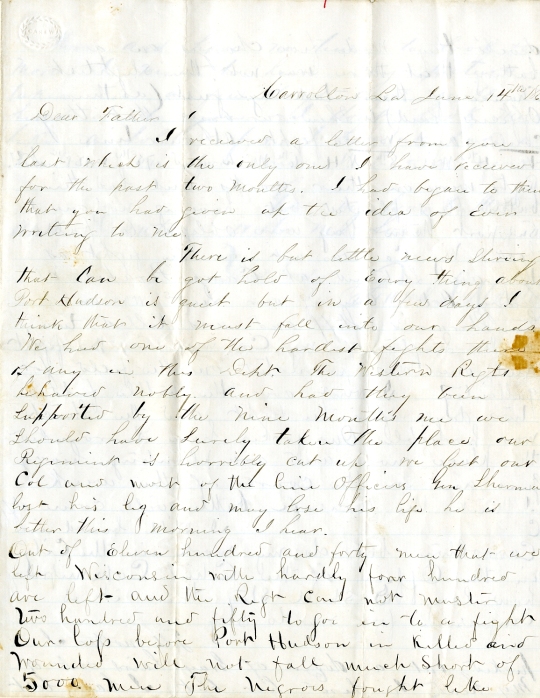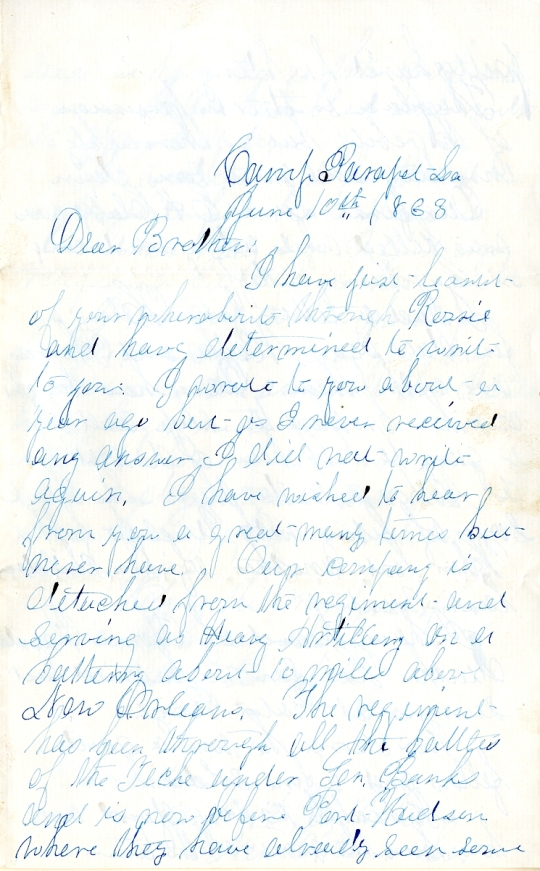The following summary of the week’s war news is from the November 21, 1863, issue of The Prescott Journal.
NEWS ITEMS.
— The Army of the Potomac is still in the same place it occupied at last account. Cavalry reconnoisances [sic], with an occasional shot at a rebel, and “firing” heard in the direction of somewhere, is the startling intelligence we have from the war in Virginia.
— The barbarians at Richmond are not content with starving our soldiers, but they refuse to allow supplies to be sent them. A steamer with food and clothing attempted to reach Richmond, but was not permitted to do so.
— BRAGG [Braxton Bragg] has opened fire upon Chattanooga and its adjacent camps. It is stated by some of the correspondents that he has for a long time been quietly working his parallels up towards Chattanooga and expects to compel the Federals to evacuate the place. We shall soon learn the full measure of his success or defeat.
— In Louisiana, a late fight occurred between WASHBURNE’s [sic: C. C. Washburn] advance and the rebels, in which the latter were successful at first, but were finally repulsed with a lose of 100 killed and 200 prisoners.
— The bombardment of Fort Sumpter [sic] is still progressing. It would seem as if it must be pretty well pulverized by this time. The monitors have attacked the Sullivan Island batteries.
— A collision recently occurred on the Opelousas Railroad [in Louisiana] by which the 97th Illinois had 12 killed and nearly seventy wounded. The 54th Illinois had 2 killed.
— Indications are that the State of Missouri is to take measures for the emancipation of her slaves this winter.—Should she do so, a new movement is inaugurated which will not stop until every state in the Union has free State Constitutions, and not a bondman treads American soil.
— Minister ADAMS¹ says that English sentiment is now strongly in favor of the North.
— The Secretary of War directs that for each battle in which every officer, non commissioned officer and private in the Invalid Corps may have been engaged and borne an honorable past, a scarlet braid, one sixth of an inch wide may be worn on the right arm, with a space of one sixth of an inch between each braid.
— GEN. BANKS [Nathaniel P. Banks] is rapidly moving forward with his Texas Expedition, and will soon have the back door of Rebeldom effectually closed. If Richmond was starving previous to this movement, it will be difficult to describe its situation when its supplies from Mexico and Texas are cut off.
— Massachusetts has passed the bill for payment of $300 State bounty to each volunteer. They also passed a bill to pay colored soldiers three dollars a month from the State Treasury, which makes their compensation equal to that of the white troops.
— The Union pyramid of 1863 is made up of nineteen large and loyal states. We give the other sides as follows
COPPERHEAD PYRAMID.
n e w
jer
se
y.
— PRO. MAR. GEN. FRY [James B. Fry] says that a citizen who pays the $300 commutation, is exempt from service for the whole time for which he was drafted, viz; three years.
— The Hudson Bar have passed very appropriate resolutions on the death of Lieut. E. A. CLAPP and Hon. JAMES B. GRAY.
1. Charles Francis Adams, Sr. (1807-1886) was the son of John Quincy Adams—who was the U.S. envoy extraordinary and minister plenipotentiary to the Court of St. James’s, 1814-1817—and grandson of John Adams—minister plenipotentiary to the Court of St. James’s, 1785-1788. Charles F. Adams served in the Massachusetts State Senate (1844-1845), ran unsuccessfully for U.S. vice-president in the 1848 election, and served in the U.S. House of Representatives from Massachusetts (1859-1861). During the Civil War, Adams was Lincoln’s foreign minister in London, where he played a key role in keeping Britain neutral.
The office of United States Minister/Envoy Extraordinary (now Ambassador) to the United Kingdom is known formally as Minister to the Court of St. James’s.


